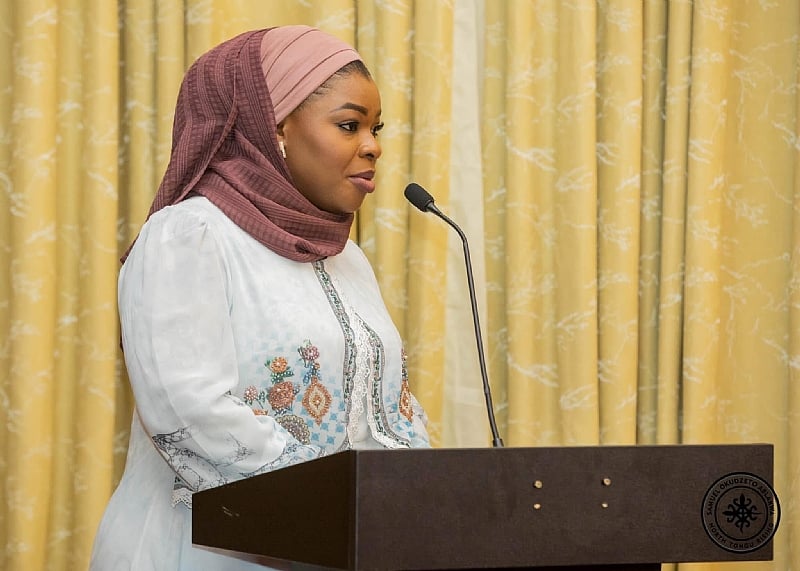President John Dramani Mahama’s commitment to combating corruption has been staunchly defended by Deputy Presidential Spokesperson Shamima Muslim, who argues that the discontinuation of certain court cases should not be interpreted as a sign of wavering resolve. Muslim contends that Mahama’s anti-corruption stance is stronger than that of his predecessors and emphasizes that his administration will not shield anyone involved in corrupt practices. She maintains that the decision to drop these cases is grounded in the pursuit of justice based on merit, rather than political expediency or the protection of allies. The Attorney General, according to Muslim, will soon address the nation to provide transparency and clarity regarding the rationale behind the discontinued cases.
Muslim underscored Mahama’s commitment to tackling corruption, highlighting the implementation of initiatives such as Operation Recover All Loot (ORAL). This program demonstrates the president’s proactive approach to retrieving misappropriated state assets and holding perpetrators accountable. She stressed the president’s personal commitment to preventing state capture and the illegal acquisition of state assets, a commitment explicitly articulated in Mahama’s manifesto. This pledge, according to Muslim, signifies a clear departure from the past and a genuine desire to halt the erosion of democratic gains through corrupt practices. She challenges critics to consider the lack of convictions during previous administrations, despite their control over the legal system, implying that Mahama’s approach is a marked improvement.
The discontinuation of the court cases, Muslim argues, should be viewed within the larger context of Mahama’s anti-corruption strategy. She asserts that these decisions are not indicative of leniency towards corruption but rather a strategic move to ensure that justice is served effectively. The upcoming address by the Attorney General will shed light on the specific reasons for dropping each case, allowing the public to assess the merits of the decisions. Muslim emphasizes that Mahama’s commitment to transparency is unwavering, and the Attorney General’s address is a testament to this commitment.
Muslim further emphasizes the president’s proactive approach by highlighting the inclusion of anti-corruption measures in his manifesto. This, she argues, is a clear indication of his seriousness in tackling the issue. The explicit commitment to preventing state capture and the illegal acquisition of state assets serves as a public declaration of intent, setting a precedent for future administrations. By including these measures in his manifesto, Mahama has elevated the fight against corruption to a central pillar of his governance agenda, signaling a departure from previous administrations that may have been perceived as less committed.
Furthermore, Muslim challenges the narrative that the discontinued cases represent a step back in the fight against corruption. Instead, she frames them as a strategic recalibration to ensure that the pursuit of justice is not hampered by political considerations or vendettas. She suggests that previous administrations may have used the legal system to target political opponents rather than genuinely pursuing justice. Mahama’s approach, she argues, is different, prioritizing a merit-based system that focuses on evidence and due process.
In essence, Muslim’s defense of President Mahama centers on the argument that the discontinuation of certain court cases is not synonymous with condoning corruption. Rather, it is a strategic decision aimed at ensuring that the pursuit of justice is based on solid evidence and due process, free from political interference. Mahama’s proactive initiatives, such as ORAL, coupled with his explicit manifesto commitment to combating state capture and illegal acquisition of state assets, demonstrate a genuine dedication to tackling corruption. The forthcoming address by the Attorney General promises to provide further clarity and transparency, allowing for a more informed public assessment of the government’s actions.


